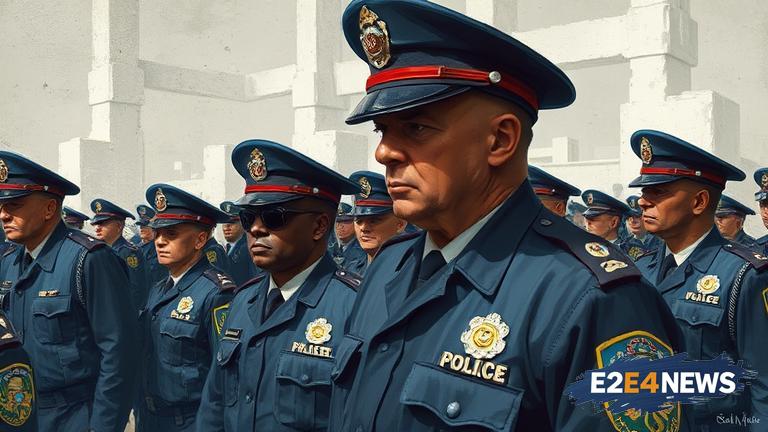The South African Police Service (SAPS) is currently embroiled in a bitter court battle between two of its top officials, Lieutenant-General Sindile Sibiya and National Police Commissioner, General Fannie Masemola. The case, which was set to be heard in court, has been delayed, leaving many to wonder about the implications for the police service. The dispute between Sibiya and Masemola is centered around Sibiya’s appointment as the head of the police’s detective unit, a position that Masemola had allegedly promised to another candidate. Sibiya has claimed that Masemola’s decision to rescind his appointment was unfair and motivated by personal vendettas. The court battle has sparked concerns over the stability and effectiveness of the SAPS, with many calling for an end to the infighting and a focus on addressing the country’s high crime rates. The delay in the court case has only added to the uncertainty, with some speculating that it may be a tactical move by one of the parties involved. The SAPS has been plagued by internal conflicts and power struggles in recent years, which have undermined its ability to effectively combat crime. The current turmoil has also raised questions about the leadership of the police service and the ability of its top officials to work together in the best interests of the country. As the court battle continues, many are watching with bated breath, hoping that a resolution will be found soon and that the SAPS can get back to its core mandate of keeping South Africans safe. The delay in the court case has also sparked concerns about the potential impact on the police service’s morale and its ability to attract and retain top talent. The SAPS has been working to reform and modernize its operations in recent years, but the current turmoil has threatened to undermine these efforts. The police service has also been under pressure to address high levels of corruption and misconduct within its ranks, and the current court battle has only added to the challenges it faces. Despite the challenges, the SAPS remains a critical institution in South Africa, and its effectiveness is essential to the country’s safety and security. The court battle between Sibiya and Masemola is just one of many challenges facing the police service, but it has highlighted the need for strong and effective leadership. The SAPS has a long history of serving the people of South Africa, and it is essential that it is able to continue to do so in a fair, impartial, and effective manner. The current turmoil has also raised questions about the role of the police service in South African society and the need for greater accountability and transparency. As the court battle continues, it is essential that the SAPS remains focused on its core mandate and that its top officials work together to address the challenges facing the police service. The delay in the court case has only added to the uncertainty, but it is hoped that a resolution will be found soon and that the SAPS can get back to its core work of keeping South Africans safe. The SAPS has a critical role to play in addressing the country’s high crime rates, and it is essential that it is able to do so in a fair, impartial, and effective manner. The current turmoil has also highlighted the need for greater support and resources for the police service, including better training and equipment for its officers. The SAPS has been working to improve its relationships with local communities, but the current court battle has threatened to undermine these efforts. Despite the challenges, the SAPS remains committed to serving the people of South Africa, and it is essential that it is able to continue to do so in a fair, impartial, and effective manner. The court battle between Sibiya and Masemola is just one of many challenges facing the police service, but it has highlighted the need for strong and effective leadership and a focus on addressing the country’s high crime rates.
